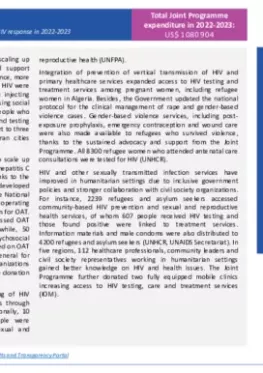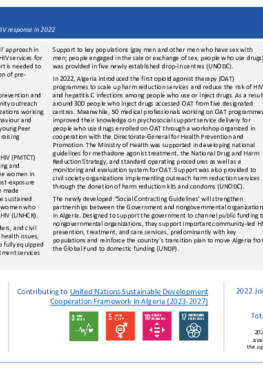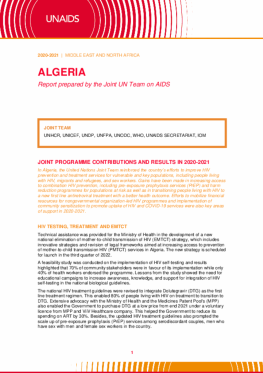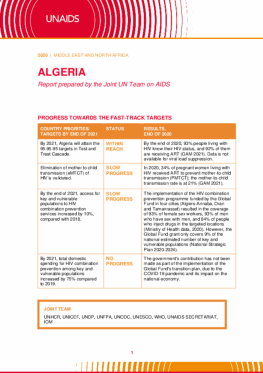|
Algeria
The Joint Programme continued to support Algeria in scaling up equitable access to HIV, prevention, treatment and support services among vulnerable and key populations. For instance, more than 200 people who inject drugs and people living with HIV were sensitized on risk-reduction and HIV testing, and sterile injecting equipment was distributed to people who inject drugs using social network groups. In addition, people living with HIV and people who inject drugs accessed HIV and hepatitis C prevention and testing and other services through the Joint Programme’s support to three civil society organizations in Algiers, Annaba and Oran cities (UNODC, UNAIDS Secretariat).
In 2022, Algeria introduced its first OAT programme to scale up harm reduction services and reduce the risk of HIV and hepatitis C infections among people who use or inject drugs. Thanks to the Joint Programme’s support, the Ministry of Health developed national guidelines for methadone agonist treatment, the National Drug and Harm Reduction Strategy, and standard operating procedures as well as a monitoring and evaluation system for OAT. As a result, around 300 people who inject drugs accessed OAT from five newly established drop-in centres. Meanwhile, 50 medical professionals improved their knowledge on psychosocial support service delivery for people who use drugs enrolled on OAT through a workshop organized with the Directorate-General for Health Prevention and Promotion. Civil society organizations provided outreach harm reduction services thanks to the donation of harm reduction kits and condoms (UNODC).
A total of 2184 people improved their understanding of HIV prevention and sexual and reproductive health services through community outreach and information sessions. Additionally, 10 civil society organizations working with young people were empowered to promote healthy behaviour and sexual and reproductive health (UNFPA).





